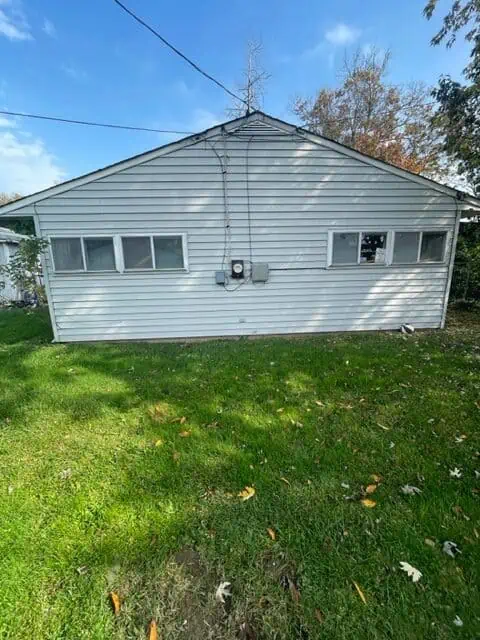
In this step-by-step guide, you will learn about the legal obligations involved in selling an inherited property. We will help you assess the value of the home, allowing you to set a competitive price that attracts potential buyers. Preparing the home for sale is crucial, and we’ll provide you with tips and tricks to make it shine.
Finding the right buyer can feel like searching for a needle in a haystack, but fear not. We’ll share effective strategies to attract qualified buyers who appreciate the unique qualities of your inherited home. Finally, we’ll assist you in closing the sale and transferring ownership smoothly.
Selling your inherited home doesn’t have to be overwhelming. With our expert guidance, you’ll navigate the process with confidence, ensuring a successful sale that honors the memories and legacy of your loved ones.
Selling Your Inherited Home – Understanding the Legal Obligations
It’s essential to comprehend the legal obligations that come with selling your inherited home. Navigating the probate process can be complex, so it’s crucial to seek guidance from a real estate attorney who specializes in this area. They can help you understand the legal requirements and ensure that you comply with all necessary steps.
The first step is to determine whether the property needs to go through probate. In some cases, if the deceased had a living trust or the property was jointly owned, probate may not be necessary. However, if probate is required, you’ll need to follow the specific guidelines set by your state.
Consulting a real estate attorney early in the process will save you time and potential headaches. They can assist in gathering all the necessary documents, such as the death certificate, will, and any other relevant legal documents. They’ll also guide you through the probate court proceedings and help you understand the timeline and costs involved.
By understanding the legal obligations and seeking professional advice, you can ensure a smooth and successful sale of your inherited home. A real estate attorney will be your trusted partner throughout the process, providing you with the necessary support and expertise to navigate through the complexities of selling an inherited property.
Selling Your Inherited Home – Assessing the Property’s Value
To accurately gauge the worth of your inherited property, start by enlisting the help of a professional appraiser who can provide an unbiased valuation. A property appraisal is crucial in determining the fair market value of your home, which is essential for a successful sale.
A professional appraiser will thoroughly inspect the property, taking into account factors such as the size, condition, location, and recent sales of comparable properties in the area. They’ll use their expertise and knowledge of the local real estate market to provide you with an accurate assessment of your property’s value.
In addition to the appraisal, conducting market research is also important. This involves analyzing recent sales and listings of similar properties in your neighborhood. By studying the market trends and comparing your property to others, you can gain insights into the current demand and pricing in your area. This information will help you set a competitive asking price that attracts potential buyers while maximizing your profit.
By combining a professional property appraisal with thorough market research, you can confidently determine the true value of your inherited home. This knowledge will empower you to make informed decisions throughout the selling process, ensuring a successful and profitable sale.
Preparing the Home for Sale
Getting your inherited home ready for sale is a crucial step in ensuring a successful and profitable transaction. To attract potential buyers and maximize your property’s value, it’s essential to renovate and stage the home effectively.
First, assess the condition of the property and identify any necessary renovations. This might include repainting walls, replacing outdated fixtures, or repairing any structural issues. By investing in these improvements, you can increase the overall appeal and market value of your inherited home.
Once the necessary renovations are complete, it’s time to stage the home. Staging involves arranging furniture, decor, and other elements to highlight the property’s best features and create a welcoming atmosphere. Consider hiring a professional stager who can expertly showcase the home’s potential and make it more appealing to potential buyers.
Furthermore, pay attention to curb appeal. Enhance the exterior of the property by cleaning up the landscaping, adding fresh mulch, and painting the front door. First impressions matter, and a well-maintained exterior can significantly impact a buyer’s perception of the home.
Renovating the property and staging the home are critical steps in preparing your inherited home for sale. By investing the time and effort into these tasks, you can increase the chances of a successful and profitable transaction.
Finding the Right Buyer
Finding the right buyer for your inherited home is like searching for a needle in a haystack, but with the right marketing strategies and real estate agent, you can attract the perfect match who will appreciate and value your property.
When it comes to selling your inherited home, it’s important to have a clear plan in place to find the right buyer. Start by utilizing effective marketing strategies to showcase the unique features and potential of your property. This can include professional photography, virtual tours, and targeted online advertisements.
Your real estate agent can also help you identify potential buyers by reaching out to their network and using their expertise to attract the right audience.
Once potential buyers start showing interest, it’s time to employ effective negotiating tactics. Your real estate agent can guide you through this process, helping you set a competitive price and negotiate offers. It’s important to stay informed about the current market conditions and be willing to negotiate to reach a mutually beneficial agreement.
Remember, finding the right buyer for your inherited home is not an easy task, but with the right marketing strategies and negotiating tactics, you can increase your chances of finding someone who truly appreciates and values your property.
Closing the Sale and Transferring Ownership
Congratulations! You’re now ready to seal the deal and officially transfer ownership of your inherited home. The title transfer process is a crucial step in closing the sale and ensuring a smooth transition of ownership.
To start, you’ll need to gather all the necessary documents, including the deed, death certificate, and any probate or court orders. Once you have these in order, you can proceed with the transfer process.
Negotiating the sale price is another important aspect of closing the deal. It’s essential to set a fair price that reflects the market value of your inherited home. Consider obtaining a professional appraisal to get an accurate assessment of its worth. This will give you a strong position when negotiating with potential buyers.
When negotiating, keep in mind that flexibility is key. Be open to offers and consider any reasonable counteroffers that come your way. Remember, the goal is to find a buyer who appreciates the value of your inherited home and is willing to pay a fair price.
Once you have agreed on a price, it’s time to prepare the necessary documents for the transfer of ownership. This usually involves drafting a purchase agreement, which outlines the terms and conditions of the sale. It’s crucial to review this document carefully and seek legal advice if needed.
Closing the sale and transferring ownership of your inherited home requires careful attention to detail. By following the title transfer process and effectively negotiating the sale price, you can ensure a successful and smooth transition for both parties involved.
Frequently Asked Questions
How long does it typically take to sell an inherited home?
The selling timeline of an inherited home can vary depending on several factors. Common challenges faced include legal processes, property condition, and market conditions. However, with proper guidance and support, you can successfully navigate through these obstacles and sell your inherited home.
Are there any tax implications associated with selling an inherited home?
Yes, there are tax implications when selling an inherited home. You may be subject to capital gains tax, which is based on the difference between the sale price and the home’s value at the time of inheritance.
What should I do if there are multiple heirs to the inherited home?
If there’s a battle for the inherited home, fear not! Handling disputes among multiple heirs can be a headache, but with proper legal documentation and open communication, you’ll find a solution.
Can I sell an inherited home if there is an existing mortgage on the property?
Yes, you can sell an inherited home even if there is an existing mortgage on the property. By selling the inherited property with a loan, you can pay off the mortgage and transfer ownership to the buyer.
Are there any specific regulations or restrictions when selling an inherited home in a different state?
When selling an inherited home in a different state, there are specific regulations and legal requirements to consider. Navigating the interstate property sales process can be challenging due to varying estate laws and understanding local market conditions. Hiring a real estate agent in the state where the property is located can help you navigate these legal complexities and ensure a successful sale.
Conclusion
Congratulations! You’ve successfully navigated the process of selling your inherited home. By understanding your legal obligations, assessing the property’s value, preparing it for sale, finding the right buyer, and finally closing the sale and transferring ownership, you’ve taken the necessary steps to ensure a smooth and successful transaction.
Remember, Rome wasn’t built in a day, and neither is selling a home. But with patience, perseverance, and a little elbow grease, you can achieve your goal of selling your inherited home and moving on to the next chapter of your life.

